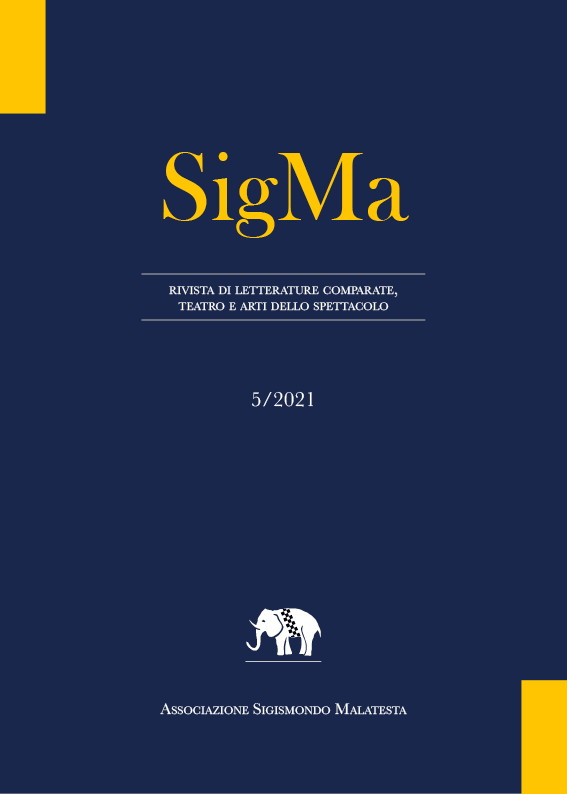Plenitudine visuale: note di cultura visuale nel congegno ‘salva progressi’ di “Rick & Morty”
Abstract
Partendo da una ricognizione critica del volume Plenitudine digitale di Jay David Bolter (2019), il saggio intende fornire un contributo al dibattito teorico sull'esperienza utente nel sistema di produzione e disposizione delle immagini digitali che è definibile come "plenitudine visuale". L'ipotesi di partenza è che l’odierna plenitudine visuale - caratterizzata dall’ibridazione fra cultura alta e popolare, vecchi e nuovi media, istanze politiche conservatrici e radicali - promuova esperienze utente di auto-riflessione e addestramento alle stesse procedure visuali. In particolare, navigando lungo le dicotomie epistemologiche individuate da Bolter (catarsi/flusso, originalità/remix, spontaneità/proceduralità, storia/simulazione), e adoperando gli strumenti dei software e visual studies, si prenderà in esame un "media immaginario" presentato nella puntata della serie animata Rick & Morty (Adult Swim, 2015-) intitolata The Vat of Acid Episode (L'episodio della vasca d'acido, 2020), dove Rick costruisce al nipote Morty un telecomando che gli permette di salvare e ricaricare istanti della propria vita reale. La storia di questo device è inquadrata come oggetto di training visuale per guidare il personaggio e lo spettatore fra le relazioni di potere che intercorrono tra forme del racconto audiovisivo e strategie di capitalizzazione dell'immaginario, utilizzi trasparenti e fantasie legate ai dispositivi di visione digitali e conseguenze invisibili e materiali connesse al loro utilizzo globale.
Downloads
SigMa pubblica in internet, ad accesso aperto, con licenza:
|
|
CCPL Creative Commons Attribuzione |
L'autore conserva il copyright sul suo contributo, consentendo tuttavia a chiunque "di riprodurre, distribuire, comunicare al pubblico, esporre in pubblico, rappresentare, eseguire e recitare l'opera", purché siano correttamente citati l'autore e il titolo della rivista. L’autore, al momento della proposta di pubblicazione, è inoltre tenuto a dichiarare che il contenuto e l’organizzazione dell’opera è originale e non compromette in alcun modo i diritti di terzi, né gli obblighi connessi alla salvaguardia di diritti morali ed economici di altri autori o di altri aventi diritto, sia per testi, immagini, foto, tabelle, sia per altre parti di cui il contributo può essere composto. L’autore dichiara altresì di essere a conoscenza delle sanzioni previste dal codice penale e dalle leggi speciali per l’ipotesi di falsità in atti ed uso di atti falsi, e che pertanto Reti Medievali è esente da qualsiasi responsabilità di qualsivoglia natura, civile, amministrativa o penale, e sarà dall'autore tenuta indenne da qualsiasi richiesta o rivendicazione da parte di terzi.

